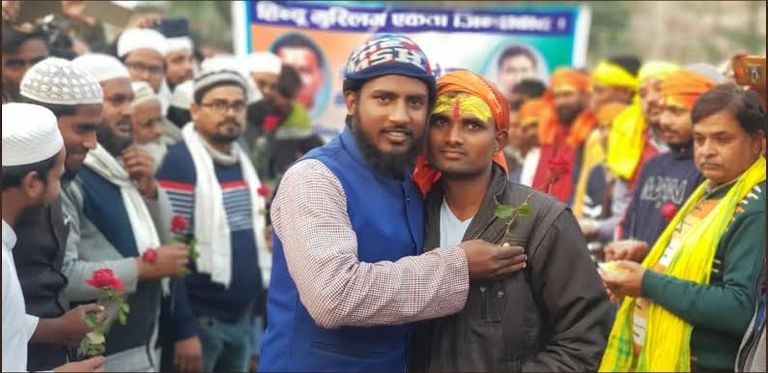
Lightning flashes of Hindu-Muslim cooperation
The Hindu terrorist movement came to a standstill by 1909, although its memory haunted the British for a long time, one of the results of which was the abolition of the Partition of Bengal. Yet the compatriots cannot bring Swaraj through terror. This was well understood then.
The political frenzy of the Swadeshis through the Congress also ceased after the Partition of Bengal. Their ‘Bande Mataram’ canceled the partition of Bengal, but their Swaraj could not advance the wheel of thought even an inch.
In addition, the Morley-Minto reforms gave Muslims the right to separate elections and independent representation, which was in fact no more a blow to the Congress-Swadeshi than the partition of Bengal. The very existence of the Muslims that they want to eradicate, they have received a great deal of formal recognition of nationalism. The Congress compatriots were outraged, but there was nothing to do. The cold-headed Hindu leadership thought that their protest, this rage, would further expose the distinct existence of the Muslims.
They thought that the solution was to bring it to the Muslims. They thought that their Swaraj thinking would remain fragmented outside the Muslims or with their opponents. Leaders like Gopal Krishna Gokhale have made it clear that without the co-operation and support of the Muslims, the demand for autonomy of the Congress will not matter to the government. Thus many Hindu leaders were anxious to reach an agreement with the Muslims.
On the other hand, the Muslim League also wanted to extend a helping hand to the Congress. One of the reasons is the slight change in the leadership of the Muslim League. Nawab Salimullah, the uncompromising leader of Muslim interests, retired from politics. Nawab Muhsinul Mulk died. Nawab Vikharul Mulk and Syed Ahmad Bilgrami had to step down from the Muslim leadership due to other responsibilities.
Then in 1913, at the request of Syed Amir Ali and Maulana Muhammad Ali, Quaid-e-Azam Muhammad Ali Jinnah joined the Muslim League, but he did not resign from the Congress. In other words, he started to form the Muslim League, but also remained in the Congress. When Quaid-e-Azam joined the Muslim League, he made it clear that his allegiance to the Muslim League and Muslim interests would not hinder his commitment to the larger national cause, the Congress.
After Nawab Salimullah, AK Fazlul Huq became the chief in the politics of Bengal Muslim League. When he was elected to the Bengal Executive Council in 1912, he came to the fore and leaders like Nawab Nawab Ali Chowdhury fell behind. This change in the leadership of the Muslim League brought the Muslim League closer to the Congress. The Muslim public opinion and the policy of the Muslim League also underwent major changes during this period. The abolition of the Partition of Bengal and the delay in establishing Dhaka and Aligarh Universities and the British attitude towards Turkey in the Balkan Wars angered the Muslims. Added to this is another international situation.
In 1914, World War II began. The Caliph of Turkey sided with Germany against the British. The Muslims of India were in danger. On the one hand, the reality of supporting the British ruler of Tat, on the other hand, the moral obligation to support the caliph of the Islamic world. Eventually the verdict of the Muslims went against the British. However, Quaid-e-Azam was in favor of remaining silent on the issue. But most of the Muslim leadership did not accept it.
Muslim newspapers became vocal against the British and the movement began. Maulana Shawkat Ali, Maulana Mohammad Ali, Maulana Abul Kalam Azad, Maulana Zafar Ali Khan, Maulana Akram Khan and Maulana Moniruzzaman Islamabadi were arrested as initiators of this movement and Muslim newspapers were shut down. This move by the British government made the Muslims more anti-English. In this situation, the Muslim League leaders naturally felt the urge to reach an agreement with the Congress against the British. Quaid-e-Azam was the pioneer in this regard. He had two goals in front of him - one, the right to self-determination and the attainment of independence. Two, Hindu-Muslim unity.
He said that Hindus and Muslims should stand united and make arrangements for the transfer of power as soon as possible in a manner consistent with all constitutions and in a lawful manner. The united demands of 300 million people will create a force that no force on earth can resist.